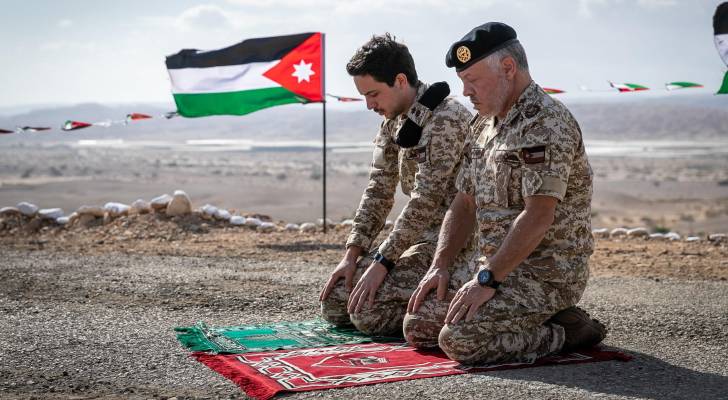King Abdullah II, Crown Prince Hussein visited and prayed at the Baqura enclave, a Jordanian territory returned by 'Israel' on 2019.
Public in 'Israel' admires Jordan’s draft, criticizes Netanyahu: Hebrew media
Jordan’s decision to reintroduce compulsory military service after 35 years has drawn wide attention in 'Israel', where Hebrew media covered the news in detail, while public reaction reflected a mix of admiration for Jordan’s approach and frustration at the 'Israeli' government under Prime Minister Benjamin Netanyahu over the handling of Haredi conscription.
Media coverage in 'Israel'
Yedioth Ahronoth reported under the headline: “After 34 years, Jordan reinstates mandatory military service, warns against evasion” The report highlighted that Crown Prince Hussein’s announcement aims to “prepare youth to defend their country and strengthen national identity.”
The report linked Jordan’s move to recent statements by Netanyahu regarding his vision of a so-called “Greater Israel,” noting that a spokesperson for the Jordanian government criticized Netanyahu’s remarks, calling him someone who “gains more enemies.” Officials, however, stressed that the program’s reinstatement has been in the works for more than a year based on Crown Prince Hussein’s directives, independent of Netanyahu’s statements.
Read more: 'Israeli' media reacts to Jordan’s reintroduction of compulsory Military Service
Professor Ronen Yitzhak, head of Middle East studies at Western Galilee College in 'Israel', said that although Jordan did not officially link the two events, the Crown Prince’s speech emphasizing national defense was notable, given public calls in Jordan for mandatory service.
Public reaction in 'Israel': admiration for Jordan, frustration domestically
Commenters in 'Israel' expressed a stark contrast between Jordan’s approach and their own country’s handling of the Haredi draft crisis:
- Admiration for Jordan’s seriousness: Many praised Jordan for building national loyalty, with one comment reading: “When a people believe in their country, they do not evade military service like the Haredim here. Jordan shows us how to build national loyalty!”
- Criticism of draft evasion: Comparisons were made to Israel’s Haredim, with a commenter saying: “In Jordan, draft dodgers go to jail. Here, the Haredim get exemptions while we serve!”
- Concerns about 'Israel’s' military future: Some expressed worry over the army’s future: “Every day we hear about the Haredi conscription crisis, while our neighbors strengthen their armies. How long will we remain oblivious?”
- Accusations of weak governance: Criticism targeted the 'Israeli' government, with comments like: “How can a country like Jordan enforce compulsory service while we cannot apply the law to the religious?” and “Because our government relies on Haredi votes, political interests are destroying the army!”
- Concerns over Jordan’s preparedness: Some saw Jordan’s move as a signal of preparation, with one comment reading: “If Jordan reinstates mandatory service, they must be preparing for something. And we? We are busy debating Haredi exemptions!”
Overall, 'Israel’s' public reaction to Jordan’s military service decision reflects deep internal distrust, admiration for Jordan’s enforcement of the law, and concern over the future of 'Israel’s' own army amid political and social divisions.




